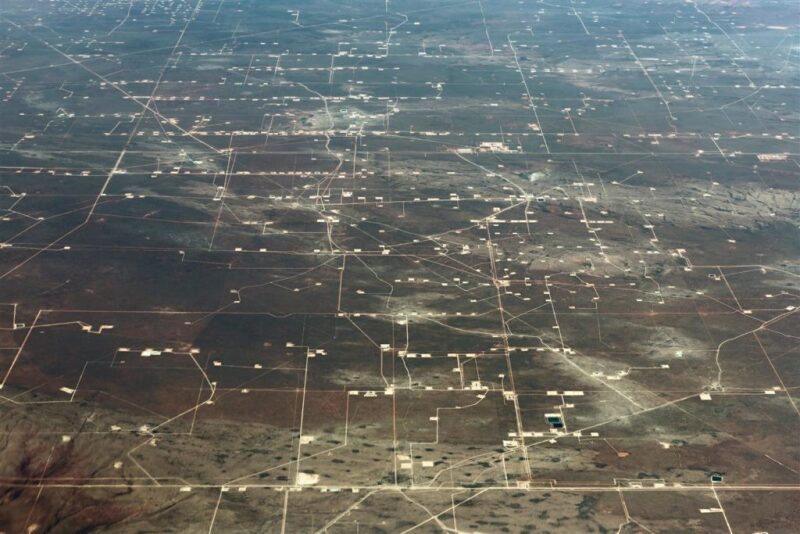Frank Lodzinski, president and CEO of Earthstone Energy, has seen a lot in 45 years in the oil business. Experiencing a downturn is a test for his company and has been so for other companies he has led previously. Reflecting both past and current success in meeting that test, Lodzinski told an industry luncheon audience last week, “We’re open for business, we’re looking for deals.”
Addressing the Independent Producers Association of America/Texas Independent Producers and Royalty Owners Leaders in Industry Luncheon at the Houston Petroleum Club, Lodzinski stressed the need for persistence and control of the balance sheet and operations as the means of surviving through thick and thin.
“We’ve focused over the years on staying out of debt-related trouble and being a high-quality operator,” Lodzinski said. “If you can make it during the downturn, and if you can get some transactions done and build locations and prove up reserves, then if and when—in my lifetime—prices ever go up again, the whole boat will be lifted and we all benefit.”
Reverse-Merge, Go Public
He explained that the strategy his companies have typically employed for years has been to acquire assets, reverse-merge into a public company, and eventually sell that company.
Lodzinski has organized, capitalized, and led a number of companies that have been sold or monetized at significant profit to investors. In 2006–2007, he capitalized Southern Bay Energy and merged it into GeoResources, which was sold to Halcón Resources in 2012. He then capitalized Oak Valley Resources and completed a reverse merger with Earthstone in December 2014.
In May 2016, Earthstone entered the West Texas Midland Basin through the acquisition of Lynden Energy and almost exactly a year later closed a merger with Bold Energy that added a significant operating presence in the basin.
A Series of Transactions
Describing the progression of events since late 2014, Lodzinski said, “We’ve done a series of transactions that have taken us—even in this reduced-price environment—from a [USD] 30-million market capitalization when we took over Earthstone to something approaching a [USD] 600-million market cap. And now, if the capital markets ever get a little stronger again, I think we’ll see that grow appreciably.”
The Midland Basin “lends itself to increasing EURs [enhanced ultimate recoveries], increasing frac efficiencies, and decreasing drilling days,” Lodzinski said. “And you’ve got seven stacked layers. So we’ve gone from zero in the Midland Basin a year ago to 27,000 acres, and that’s our primary focus right now.”
The Lynden deal established a position for Earthstone of almost 6,000 acres in Howard and Glasscock counties. With merger and acquisition capital virtually unavailable and few deals coming forth, Earthstone began looking at Canadian companies and found British Columbia-based Lynden with assets exclusively in the Midland Basin. The eventual acquisition was a rarity for Lodzinski because none of the assets were operated by Lynden.
An Unusual Deal
“We very, very, very reluctantly do a non-op deal,” he said. However, the production, acreage, and financial position of Lynden—which was “not overleveraged,” Lodzinski said—convinced Earthstone to complete the deal in an all-stock transaction. Most of the acquired acreage is operated by Midland-based CrownQuest Operating.
“For us to get involved in a non-op deal, you’ve got to be some pretty classy and knowledgeable folks,” Lodzinski said. CrownQuest has since drilled “a gangbuster well,” he said. “So this was one of the pleasant surprises because we put no [financial] value on the acreage when we closed.”
The merger with Bold brought an additional 21,000 acres in Reagan, Upton, and Midland counties.
‘Pretty Optimistic’
“We’re pretty optimistic about increasing the Midland and the Upton acreage from a 1-million-BOE type curve to maybe 1.2 million or 1.3 million, if some of the things we’re working on with the fracs work out,” Lodzinski said. In Reagan County, he is hopeful that the type curves can be brought up to a 1-million-BOE level.
“That’s been our ‘MO’ in the past,” he said. “At the same time, reduce drilling days, be consistent in your AFEs [authority for expenditures], show performance that might yield a better EUR, and go to the market with positive reserve revisions rather than negative. At least that’s what we try to do.”
Earthstone also holds smaller positions in the Eagle Ford Shale of Texas and the Bakken/Three Forks Shale of North Dakota. Total first-quarter production, stated to reflect the Bold merger (which was completed in May), was 9,515 BOE/D, almost 65% of which was in the Midland Basin.

